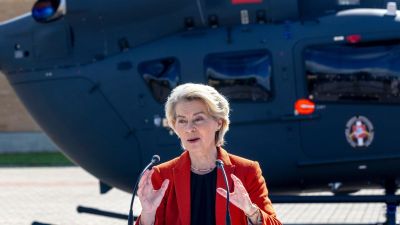It146;s not about Sharon
As the first visit by an Israeli prime minister commences, it is an opportune moment to recommend a third way on West Asia. Even in the most...

As the first visit by an Israeli prime minister commences, it is an opportune moment to recommend a third way on West Asia. Even in the most tranquil of times, the question of official ties with Israel instantly polarises hard-nosed pragmatists from dewy-eyed idealists. So given the intense passions Ariel Sharon provokes, it is perhaps inevitable that the middle ground has shrunk even more and policymakers and observers alike appear to be poised at the extremes. Depending on their ideological inclinations, it remains an either-or proposition. Either Sharon8217;s historic visit is a triumph of nuts-and-bolts considerations 8212; the possibility of increasing defence and trade cooperation 8212; over outdated commitments to the Palestinian cause. Or it is a moral sell-out 8212; a case of supping with the occupier for a few pieces of silver.
This is regrettable, for cementing geo-political and trade links with Israel need in no way weaken New Delhi8217;s traditional insistence that Palestinians be ceded control of their territories, that an end to their confinement and disenfranchisement be peacefully negotiated. Sharon8217;s visit in any case is not a radical foreign policy departure. It caps a decade of evolving, though sometimes covert, bonds. Ever since the P.V. Narasimha Rao government established diplomatic links with Tel Aviv in 1992, cooperation has grown at an even pace. India is already Israel8217;s second largest trading partner in Asia, with annual business in excess of 1 billion. The ballast for Indo-Israeli relations, however, is provided by defence cooperation. The nineties provided the context for this, with Russian military equipment diminishing or considered obsolete and India facing stringent post-Pokharan defence sanctions. India, in fact, has displaced Turkey as Israel8217;s largest arms importer. This cooperation has spilled over into joint anti-terrorism training programmes and missile defence. And, of course, the passage of senior ministers and officials between the two countries has been steady. Therefore, this week8217;s prime ministerial summit offers the two countries ample opportunity to give sharper focus and coherence to bilateral relations.
It also gives New Delhi a chance to affirm its abiding desire for a separate Palestinian state. India has always led in its support to the Palestinian people, and it is a moral position it must reiterate. If the geopolitical map of the post-Cold War, post-9/11 world has thrown India and Israel into a mutually beneficial relationship, this new warmth could also benefit the cause of peace in West Asia.
- 01
- 02
- 03
- 04
- 05































